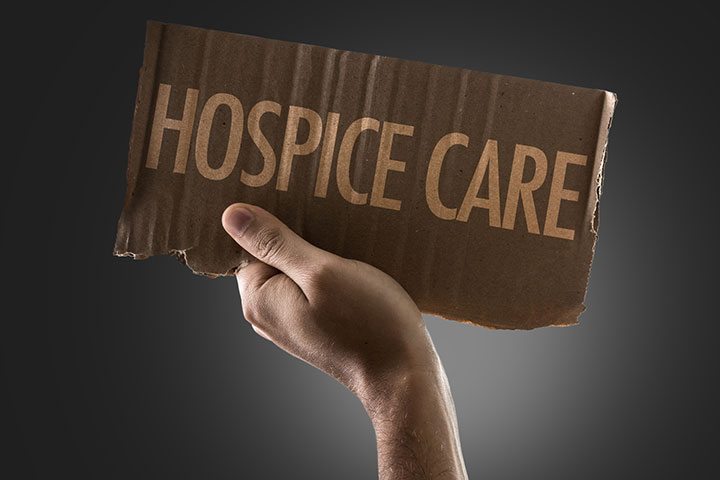For the past four or five months my daddy has been going downhill. He’s still wrestling with a urinary tract infection (UTI) that has been going on for months. Mama is stressed and tired. Daddy refuses dialysis. He lost his bladder to cancer 16 years ago and his kidneys have been compromised ever since.
He’s done what he can to preserve his kidney function — drinking lots of water to keep the potassium from doing harm. It is remarkable that he’s been able to have such a good life since the surgery. The surgeon lost his own father to bladder cancer just a year before he operated on my daddy. The surgeon was surprised daddy survived a year and dumbfounded he has survived sixteen, but now it’s getting bad. Daddy spends most of his time in his recliner. He hates it. Staying busy is just who he is.
So Is It Time To Call in Hospice?
I learned from my gerontology professors that you should know about hospice long before you ever need it. The National Hospice and Palliative Care Organization (NHPCO) confirms this. Knowing your loved ones’ wishes long before hospice is needed will reduce stress and let everyone become aware of what should happen and when.
How Do You Know When? And How Do You Get Things Started?
Hospice care begins with your doctor. Either he will suggest that it’s time or you can request hospice care. The general rule of thumb is that your doctor suspects you are 6 months to a year away from death. According to NHPCO, once the doctor makes the request, a representative will be out to visit and take an evaluation within 48 hours. If it’s an emergency situation, it could be sooner.
Who Will Hospice Send Out to Help?
After the assessment is done, a team takes over. It’s not just a visiting nurse or someone to help with care needs — it’s a team of trained professionals and volunteers who will be available to you. The NHPCO website states: “Every hospice patient has access to a hospice volunteer, registered nurse, social worker, home health aide, and chaplain (also known as the interdisciplinary team). Hospice care is available ‘on-call’ after the administrative office has closed, seven days a week, 24 hours a day. Most hospices have nurses available to respond to a call for help within minutes, if necessary. Some hospice programs have chaplains and social workers on call as well.” The volunteers are required to have extensive training so you can be comfortable with the care they provide.
What Can Hospice Do To Make Sure My Daddy Is as Comfortable as Possible?
“Keeping the patient comfortable and pain-free is an important part of hospice care, many hospice programs have developed ways to measure how comfortable the patient is during the course of their stay in hospice. Hospice staff works with the patient’s physician to make sure that medication, therapies, and procedures are designed to achieve the goals outlined in the patient’s care plan. The care plan is reviewed frequently to make sure any changes and new goals are in the plan.” — NHCPO
Yesterday, I talked to my mama about getting hospice care. At first she thought it might be a good idea, but last night said, “I think it should just be me. I don’t think it’s time yet to call in others.”
At almost 82, she still thinks she can do it all, especially when it comes to daddy. She thinks he won’t be comfortable with others around but she is wearing down. I’ll have to choose my words carefully and not let this go on too long before she gets more help. I still do what I can to help out — taking over meals and running errands. It might be okay for now, but not for long.
According to the AARP website, hospice care is provided to all Medicare recipients with costs paid by Medicare. You will need to choose a hospice organization approved by your health care provider.
The Centers for Medicare & Medicaid Services these are the services you will have access to –
- Doctor services and nursing care, plus 24-hour on-call support for home care.
- Medical equipment and supplies.
- Medications to control symptoms and pain.
- Homemaker and hospice aide services.
- Physical, occupational or speech therapy.
- Social worker services and dietary counseling.
-
Short-term care in an inpatient hospital for pain control or system management.
- Short-term respite care in an approved inpatient facility for up to five days at a time if your caregiver needs a rest.
- Support for your caregiver and family members and, if requested, coaching on how best to help meet your needs.
- Grief and loss counseling for you and your family.
(This article was updated October 2024 since it originally published April, 2018.)
